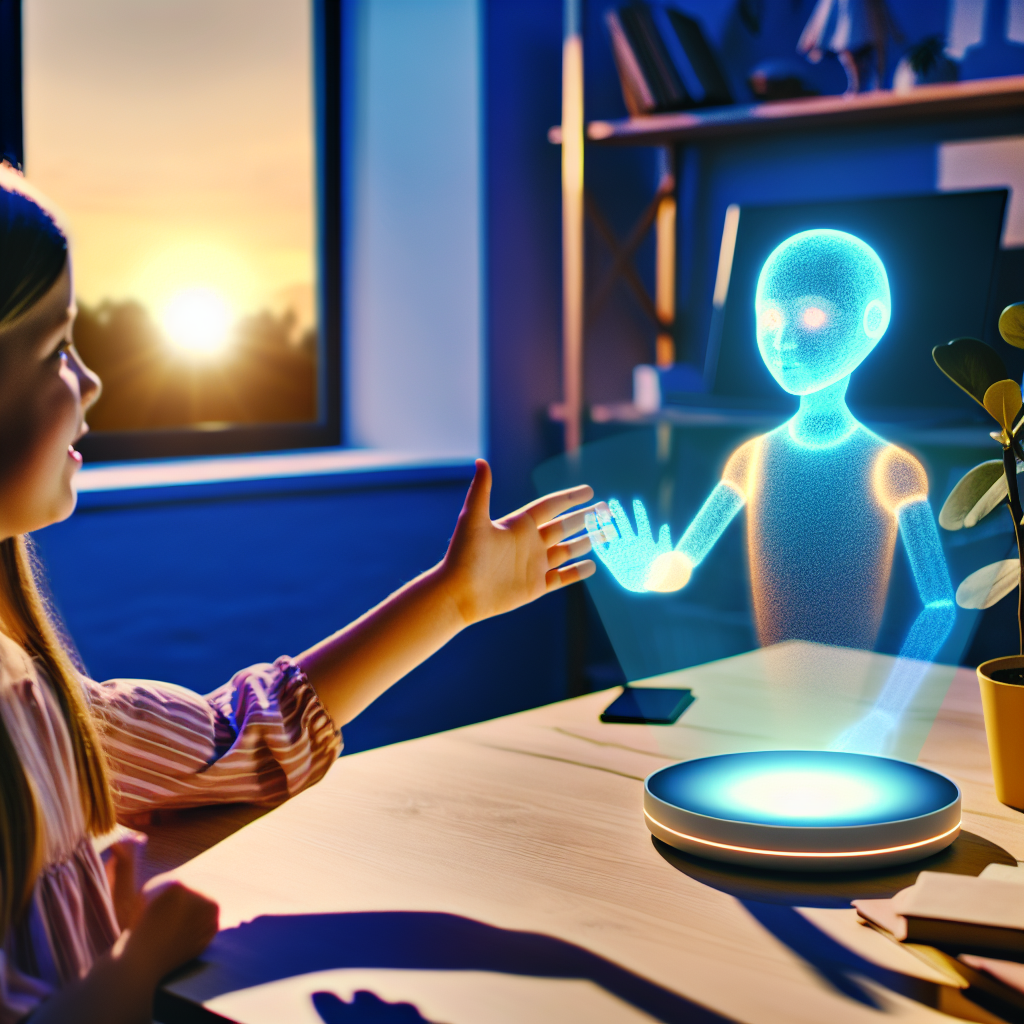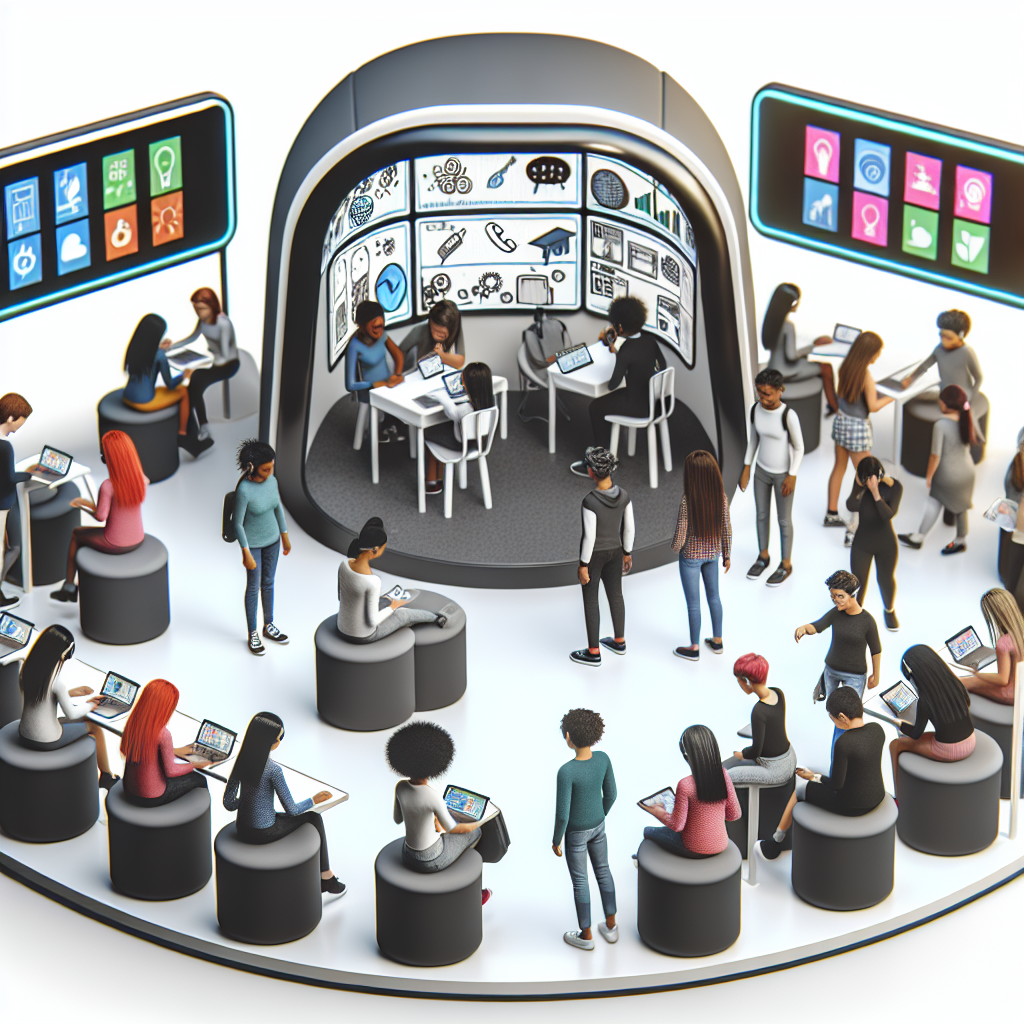AI Companions with Emotional Intelligence: The Premium Alternative to Screen Time
A New Era of Purposeful Digital Engagement
In today’s tech-driven world, where screen time for children has become both a convenience and a concern, the realm of luxury parenting is experiencing a significant evolution. For parents looking beyond conventional toys and tablets, AI companions with emotional intelligence are redefining what it means to raise emotionally resilient and socially capable children.
These aren’t just gadgets or animated characters that perform tricks. These AI companions are built with adaptive emotional intelligence—technology that enables empathetic, responsive, and educational interaction. Designed by leading experts in child psychology and AI, these devices serve as engaging educators and partners in your child’s emotional and social development journey.
The typical young child spends more than 2 hours per day interacting with screens, often indulging in highly stimulating yet passive forms of entertainment. Such interactions rarely encourage critical emotional skills like empathy, communication, or self-awareness.
Instead of focusing solely on limiting exposure, forward-thinking parents are now seeking ways to make screen time intentional, interactive, and emotionally enriching. That’s where intelligent AI companions step in.
These AI-driven tools grow and adapt with your child through dynamic interaction that mimics genuine human empathy. Equipped with advanced machine learning and affective computing, they identify and respond to vocal tones, gestures, and facial expressions—enabling a new kind of “play” that supports emotional development.
Collaborative input from child development professionals ensures that these AI devices do far more than teach academics—they become tools of emotional apprenticeship. They guide children through recognizing and regulating emotions, coping with social challenges, and building healthier routines.
For parents who equate innovation with enrichment, emotionally intelligent AI companions offer a new kind of luxury—modern solutions deeply rooted in emotional wellness and educational intention.
Emotional AI Grounded in Science and Strategy
Scientific advancements validate the integration of emotional intelligence into AI systems. Affective computing—a field pioneered by the MIT Media Lab’s Affective Computing Group—focuses on developing technology that can detect, interpret, and emulate human emotions. These insights are now being applied to educational tools capable of enhancing children’s social-emotional growth.
By combining AI with psychology, developers are creating companions that evolve through emotional feedback loops. These interactions promote more intentional and engaged learning, setting a foundation for cognitive and emotional maturity.
Meet Moxie: Empathy-Driven Robotics at Its Best
An exemplary product of this fusion of tech and empathy is Moxie, a next-gen AI robot by Embodied, Inc. Thoughtfully engineered for children aged 5–10, Moxie helps kids improve their social, emotional, and cognitive skills through daily missions and conversations.
Moxie interacts in real-time, recognizing emotional cues like tone and facial expressions. It helps children practice empathy, resolve conflicts, and understand the nuances of communication—all using strategies informed by research from child psychologists and behavioral scientists.
In clinical studies conducted in collaboration with pediatric therapists and neuroscientists, Moxie has demonstrated measurable benefits. Particularly among children on the autism spectrum, interactions with Moxie significantly enhanced social reciprocity and emotional regulation.
AI Companions That Enhance Real-World Relationships
Beyond personal development, emotionally intelligent AI also strengthens how children relate to others. A study published in Nature Machine Intelligence observed how emotionally aware robotic tutors contributed to improved cooperation and communication in group problem-solving. These AI instructors helped redirect negative emotions and fostered collaborative behavior.
By requiring children to pause, think, and engage in emotional dialogue, these smart companions act as steady mentors who build soft skills—like patience, compassion, and mindfulness. This form of interaction encourages the kind of emotional intelligence that Dr. Daniel Goleman, author of Emotional Intelligence, considers as critical as IQ for success in life.
Parent-Powered Insights and Connectivity
The innovation doesn’t stop with the child—parents, too, are empowered. Most high-end AI companion systems include apps or web dashboards that allow parents to track emotional development, receive personalized insights, and even access professionally curated activities for at-home reinforcement.
Platforms like Bondi™ are frontrunners in this parent-integrated approach. Bondi’s AI system is developed in collaboration with the UCLA Center for Child Anxiety Resilience Education and Support (CARES). It’s specifically designed to support neurodiverse individuals and those navigating social anxiety.
In such cases, a companion AI provides a nurturing, judgment-free environment where children feel safe to express themselves authentically. Built for privacy and trust, many luxury-grade companions offer offline functionality and end-to-end encryption, ensuring emotional data remains secure.
Redefining Luxury in the Smart Parenting Era
As luxury continues to shift away from extravagance toward experience, wellness, and education, emotionally intelligent AI companions mark a new pinnacle of meaningful innovation.
They are more than toys. For the parent who believes in future-proof parenting strategies, they represent an opportunity to blend leading-edge technology with the principles of conscious upbringing.
Whether improving confidence in a shy child, helping a neurodiverse learner practice empathy, or simply offering a new way to learn through curiosity and play, these AI devices are setting the standard for next-generation child development tools.
References
- MIT Media Lab – Affective Computing Group
- Embodied Inc. – Moxie Robot for Children
- “Emotionally intelligent robot tutors engage children more effectively” – Nature Machine Intelligence
- Dr. Daniel Goleman – Emotional Intelligence
- UCLA Center for Child Anxiety Resilience Education and Support (CARES)
Make Parenting Purposeful with Emotional AI
Are you ready to trade passive scrolling for emotionally intelligent growth? Discover how AI companions with empathy are transforming luxury parenting into an experience steeped in connection, cognitive agility, and emotional wisdom—because the future demands more than just smart tech. It calls for emotionally smart kids.

Dominic E. is a passionate filmmaker navigating the exciting intersection of art and science. By day, he delves into the complexities of the human body as a full-time medical writer, meticulously translating intricate medical concepts into accessible and engaging narratives. By night, he explores the boundless realm of cinematic storytelling, crafting narratives that evoke emotion and challenge perspectives. Film Student and Full-time Medical Writer for ContentVendor.com




